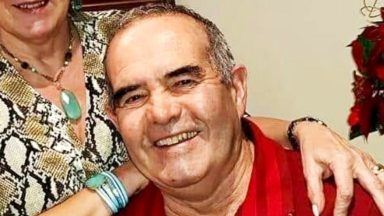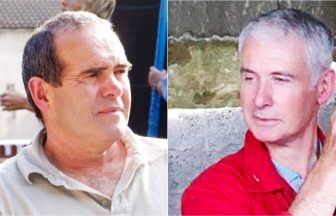A patient has been stuck in a hospital bed for more than six years, new statistics indicate.
According to figures published following a series of freedom of information requests, a patient at NHS Grampian has had their hospital discharge delayed by 2,312 days.
A spokesperson for NHS Grampian said it is unable to discuss individual patient cases, but explained that the needs of patients for safe charge “vary widely”.
The Scottish Government has said that it is working with health and social care partnerships to reduce delays in people leaving hospital.
Requests for the statistics to be made public were made by the Scottish Conservatives to health boards across Scotland.
The data shows that in NHS Forth Valley, there is a patient who has been delayed by 1,684 days.
And in NHS Tayside, one patient is experiencing a delay of 800 days, while in Greater Glasgow and Clyde, another has been delayed by 796 days.
Of the patients that have been discharged from hospital in the 12 months to June 2022, the average delay was 23 days.
However, one patient that was discharged during that time in NHS Greater Glasgow and Clyde did not leave hospital for 1,810 days, more than five years.
The average delay for patients still waiting to be discharged is 52 days.
Scottish Conservative health spokesman Dr Sandesh Gulhane said that patients are suffering because of failure to eradicated delayed discharges.
“These astonishing figures spell out the crippling reality of delayed discharge on Scotland’s interlinked NHS and social care system – and they ought to shame SNP ministers,” said Gulhane.
“It’s appalling and mind-blowing to think that a patient could be stuck in hospital for more than six years simply because there is nowhere for them to go. The mental and physical toll that must have taken on them doesn’t bear thinking about.
“But the suffering of stranded patients is only one of the devastating impacts of delayed discharge.
“There’s the enormous financial burden on NHS budgets, as well as the knock-on effects on the A&E waiting-times crisis and the huge operations backlog caused by the reduced number of available beds.”
Gulhane claimed that the Scottish Government is “diverting” £1.3bn away from the frontline in order to establish a National Care Service.
“Successive SNP health secretaries have promised for years to eradicate delayed discharge but have singularly failed to do so – and patients, not to mention taxpayers, are suffering as a result,” he continued.
“This problem stems from a shortage of care home places or social-care packages enabling patients to return to their own homes.
“Yet, instead of focusing precious resources at a local level, the SNP are diverting £1.3bn away from the frontline to set up a National Care Service controlled by ministers and lacking local accountability.”
A spokesperson for NHS Grampian said: “We are not able to discuss individual patient cases.
“Generally speaking, patient’s needs for safe discharge vary widely. Where more complex needs are involved, it can be extremely challenging to provide appropriate levels of care away from a hospital setting.
“We are actively working to ensure we achieve the principles within in the recently published ‘Coming Home Implementation Report”.
A Scottish Government spokesperson said: “Being at home or in a community setting is in the best interests of anyone who no longer has any clinical need to be in hospital.
“Not all patients are waiting on a care home or social care package – a number of patients have highly complex needs and it can take more time to plan discharge and ensure they are safe in the community.
“We continue to work with health and social care partnerships to reduce delays in people leaving hospital, ensuring people are cared for in the right setting and beds are there for those who need them.
“Latest published data, between April and December 2021, shows 97% of discharges were discharged without delay.”
They continued: “We have invested £62m to enhance Care at Home capacity and £48m to increase hourly pay for social care staff, and we have taken steps to rapidly scale up Hospital at Home services to reduce acute admissions and support timely discharge.
“We have recruited more than 1,000 additional healthcare support staff since last October, with many working in community and social care.
“Ministers continue to meet regularly with the partnerships facing the most significant challenges to discuss progress and challenges.
“In addition, £20m from the Community Living Change Fund was allocated to Integration Authorities across Scotland to aid in discharging those who have endured long stays in a hospital setting and to design community based solutions that negate or limit future hospital use.”
Follow STV News on WhatsApp
Scan the QR code on your mobile device for all the latest news from around the country


 iStock
iStock
























